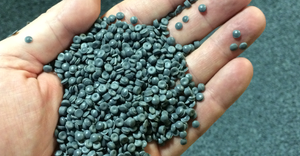Candid Cameras
December 1, 2004
Patricia-Anne Tom
FOR SOLID WASTE MANAGERS LOOKING for a little limelight, now's your chance. “Faking It,” a reality television series on the TLC cable network, is looking for sanitation workers who want to fake it at their “dream” job. The premise of the show is to follow someone who is trying to become a different person. So, the show's producers will pluck a real waste worker from his or her daily life and then give the person four weeks to master a new skill well enough to fool a panel of judges.
The show sounds at least as entertaining as the boardroom antics on “The Apprentice” and the hyped up scavenger hunt deadlines on “The Amazing Race.” However, it's one thing to watch reality-TV and quite another to be a part of it. Thus, I can understand why the National Solid Wastes Management Association (NSWMA) recently objected to the Federal Motor Carrier Safety Administration's (FMCSA) proposal to install recording devices on truck cabs to ensure drivers are not going over their hours of service limits.
On Sept. 1 2004, the FMCSA asked the industry to respond to questions about the viability of requiring recording devices on trucks. FMCSA limits the number of hours commercial motor vehicle drivers can drive and perform other tasks in a day and in a week. The in-cab recorders would ensure that the laws are being met.
Bruce Parker, president and CEO of the NSWMA, says trucking operations currently are complying with the requirements and proving it with time cards. Additionally, he says waste haulers are unlikely to violate the maximum hour requirements because many local governments restrict garbage collection to daylight hours. So requiring electronic on-board recorders on trucks to monitor drivers' compliance with hours of service requirements would simply create unnecessary expenses for the waste industry.
“Using FMCSA estimates, the private sector could be expected to pay $333 million to retrofit its fleet of approximately 111,000 trucks, which is a staggering price expense for an industry that does not cause hours of service problems,” Parker says.
This isn't saying that watching waste trucks is all bad. For example, safety cameras are helping to reduce accidents around trucks. And despite the Big Brother stigma, tracking trucks and containers with global positioning systems (GPS) can improve routing efficiency and customer service.
The trick is to know when the cameras are being overused. FMCSA's reasoning for the devices seems a little unsound when you realize most sanitation drivers aren't breaking the rules anyway. And after investigating “Faking It,” you'll find that among the alternative “dream” jobs being offered are a model, casino hostess, biker chick, bartender and stand-up comic. Which just goes to show that life in front of the camera may not always be as glamorous — or worthwhile — as it initially appears to be.
The author is the editor of Waste Age
You May Also Like


